Leslie Danford is the founder and CEO of Vitaminis, a clean-label functional food and beverage brand. Leslie has always been passionate about nutrition, but she is not a foodie. For her, it’s like a math equation, and it’s important to cover all of your nutritional bases. In 2020 she combined her personal interests with her formal business training to launch Vitaminis. Previously she worked in beverages and consumer products at large corporations. She earned her MBA from Harvard University and her BA from the University of Chicago.
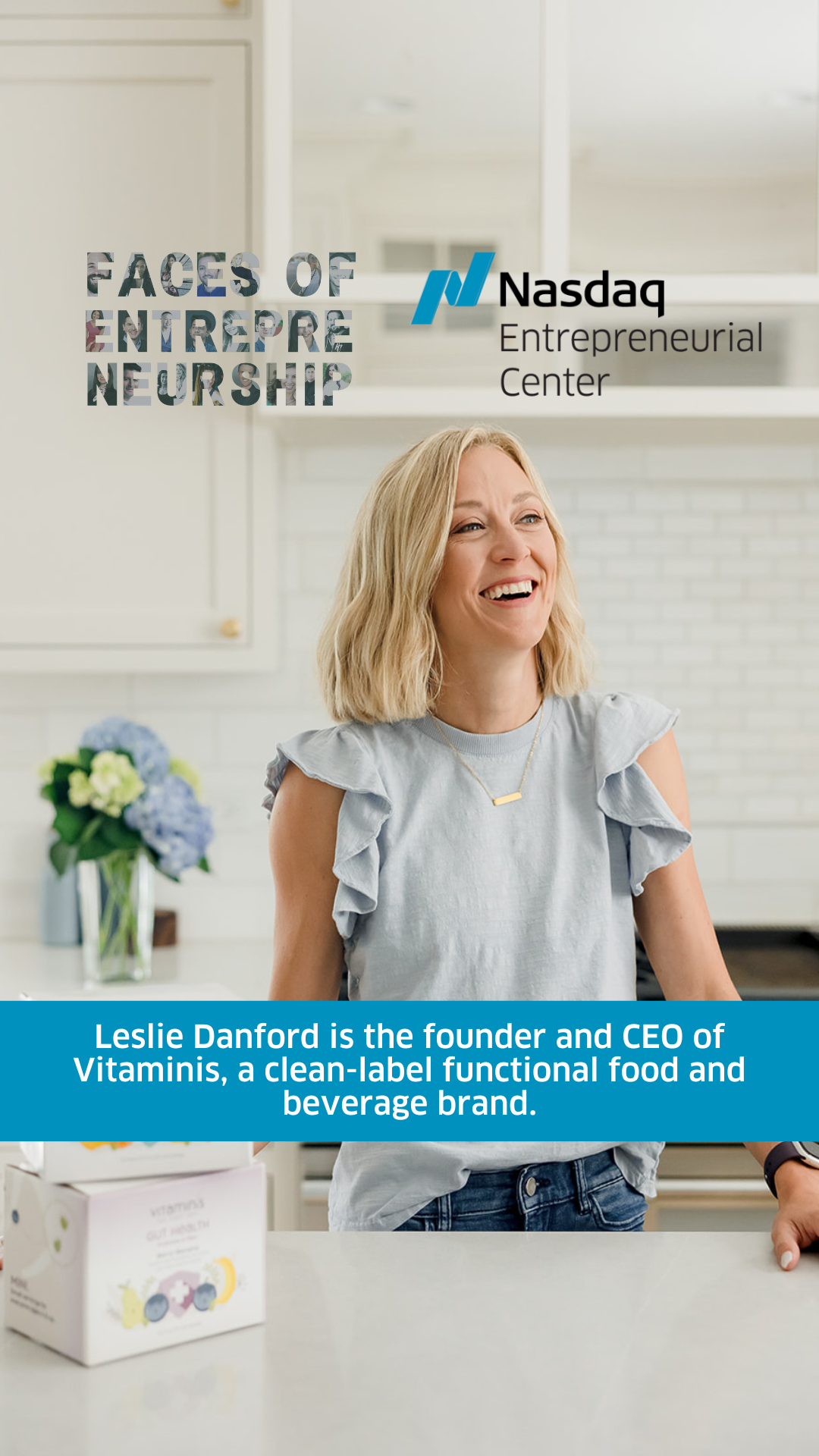 What does “entrepreneurship” mean to you?
What does “entrepreneurship” mean to you?
Leslie Danford: To me, entrepreneurship is fundamentally about embracing risk, constructing something, and fostering its growth. Without an element of risk, it’s not true entrepreneurship. However, there are diverse pathways to being an entrepreneur. In essence, it revolves around the courage to take risks to build or cultivate something new and innovative.
Tell us about your first experience with entrepreneurship.
LD: My mom loves to tell a story about me when I was seven years old. At that age, I wrote and colored a book about a princess and took the entrepreneurial initiative to bring it to life. First, I borrowed money from my mother to make copies of the book. Then, I set up a makeshift stall outside the pharmacy in our small hometown, sitting on the corner and selling copies of my personally illustrated and written princess book. I think I earned one whole dollar! Looking back, this experience marked my initial foray into entrepreneurship.
What is your company’s origin story? What is the biggest reason you started your business?
LD: I have always been a huge believer that food is medicine, and more than that, I think food is health. What you put in determines what you get out—whether it’s your body’s susceptibility to illness or your overall well-being. Beyond that, I believe that what you feed your body significantly influences the energy you have to pursue your dreams and truly chase your goals. I am a big advocate for the profound impact of food and nutrition. It truly can determine the quality of your life.
Nutrition has a huge impact on your quality of life, and I’m very mindful of the nutrients and vitamins my family and I are getting, ensuring we are covering all our bases. However, I’ve never been entirely satisfied with the supplement options available. Pills often contain strange ingredients. They can be challenging to swallow and digest. They actually make me nauseous.
Exploring alternatives, gummy vitamins didn’t appeal to me—too much sugar, and you often need to take 4-6 of them at a time to get the needed nutrients. It’s too much! While fruits and vegetables are of course the optimal choice, it can be quite challenging to get them in every day, especially knowing produce is less nutrient-dense than it used to be. This realization prompted me to start Vitaminis. I wanted something that could help my friends and family meet their nutritional needs without the trade-offs of added sugar, digestion challenges, and other downsides. We are keeping it mini, mighty, tasty!
What did those early days look like and teach you?
LD: The early days taught me that you can do more than you think you can. I had never worked in a supplement business; I had never started a company before. But I just dove right into it, thinking that if you take something big and challenging and break it into small steps, you can do almost anything.
My philosophy was to just get started, try that first little thing, and it will lead you to the next little thing. If you don’t understand something, you can always look into it, reach out to someone who does understand, and get advice. With that approach, breaking things down into little steps and leaning on experts and others in your network who have expertise, you can achieve way more than you might initially think.
What do you wish you knew when you started? Is there anything you would do differently?
LD: I didn’t understand when I started just how challenging it is to run a business. I thought the challenge was in working hard, and I believed I could work as hard as anyone else, so what was the challenge in that? But, in reality, the challenge in starting a business often lies in managing yourself mentally and emotionally because there are so many ups and downs. There’s so much uncertainty; nothing is guaranteed. You make many sacrifices and trade-offs without any guarantee of upside, and to be able to do that, you need a lot of perspective, calmness, and faith in the process.
I can’t say I would do it differently, though, because I’m not sure I would have ever jumped into Vitaminis if I fully understood just how hard it was going to be. I just had to jump in a little bit at a time and do my best.
What does “success” look like for you? We’d love to hear your biggest, boldest dream.
LD: I am so proud to even be working on Vitaminis, whatever the outcome. It was such a challenge to take this risk, put myself out there, and do something so different for me. I had always worked in big corporate jobs with very clear career paths, well-defined outcomes of success, and a clear picture of what the future would look like. For me, just taking the step to anything in this area is a success. I have no idea if the company will grow to a certain size or not. I have no idea if it will be acquired or not. I have no idea if it will shut down! However, I love working on Vitaminis, and I’ve learned and grown so much while working on this.
What do you think will help you achieve it?
LD: Going by my definition of having done it and already learning so much, I would call that a success. Now, I want to take this thing as far as I can.
What is your superpower as an entrepreneur?
LD: I would call it the 80/20 principle. Identify the 20% of activities that will provide 80% of the value, and focus on those. When you’re an entrepreneur (and a mom!), you cannot do it all. It’s just not possible. Being able to focus on the small number of activities that will give you the most impact, the biggest bang for your buck, is something that I have made my superpower out of necessity. To run this business, be a mom, and handle all the associated responsibilities, I’ve got to stay focused on what matters.
What is your proudest and darkest moment so far? Share a key high and a key low from your journey if you can.
LD: Every decision I’ve made in launching and growing Vitaminis—tweaking the ingredients, ensuring I believe in my suppliers and the product’s quality, deciding on the packaging, choosing retail partners—each of these is both a proud and a scary moment. I can ask my husband, my co-packer, or my marketing partner for advice; however, at the end of the day, I’m the one who has to stand behind the product and live with the decision. I think that always hits home every time it happens.
I do the best I can, and I just have to know when it’s good enough to pull the trigger. It makes me proud when it works out, and even when I’ve made mistakes, those moments are still significant, and I learn something in either case.
What are your personal driving principles, and your top values?
LD: My top value is ensuring that Vitaminis is effective, clean, transparent, and of high quality, both in terms of the product and the company itself and everything we do. I want to create a product and a company where it’s an open book.
Beyond that, I want to serve customers, making it easy for those who would like to get better nutrition to do so, regardless of allergies, food aversions, or pill fatigue. I try to keep our customers top of mind at all times. Thinking about what our customers want and need is definitely a driving principle for me.
How have your personal principles and values shaped your company’s values and principles? Give us some examples.
LD: Regarding transparency, I think about the sunshine test. If this decision were to appear on the front page of a newspaper, would I be proud? I run all of my decisions through that filter, from how I work with partners to the ingredients in our product. If someone were to see this, would I feel good about it? I sure hope so! That’s my North Star as I’m building this business.
What’s it like to work alone or with your partners?
LD: Working alone is difficult because it all comes back to you. You are ultimately responsible. Each of my business partners brings a unique and highly valuable perspective and expertise, and I value being able to draw on that expertise and get their advice. However, at the end of the day, the responsibility lies with me.
Along the same lines, being a solo founder really brings out your strengths and weaknesses, because you get to see them in action, and live with the outcomes. You have to be very self-aware, to ensure that you aren’t making avoidable mistakes or hasty decisions. That said, this level of self-awareness and first-hand experience brings an unparalleled level of learning and personal development.
Do you have a mentor? Tell us about what makes them valuable to you and your business. What role does mentorship play in your world (as a mentor or mentee)?
LD: I have so many mentors! I think about the mentors both for my career and for the business as a whole— a portfolio of people who bring a bunch of different perspectives. Some are more consumers of my products. I talk to my best consumers, the ones I know personally, a lot. What are you thinking about the product? What can we do differently? What do you love about it?
I also have mentors that I’ve worked with throughout my career who come from different backgrounds—some more from the investing side of what they look for in a business in terms of investment or in terms of growing the valuation. Others come from my consumer products background in terms of what you think about the liquid, the taste, the marketing, and the packaging.
I consider some of my current business partners, such as my co-packers, as mentors because they understand the technical side of the production process and the quality, and I ask for their advice all the time.
I would say I have a very long list of mentors, and I would even include on that list some of my friends who keep me real about my strengths and weaknesses. All of those perspectives are incredibly valuable as a solo founder.
Many entrepreneurs continue to perfect their daily routines to support their work and greater vision; would you mind sharing your morning routine or a regular ritual that grounds your work each day?
LD: Each day, I try to do some quiet reflection about my day. I love daily devotions, thoughts for the day, and quieting my mind to reflect on the daily message and how I’m feeling. I think about the business, how I’m doing personally, my family, my relationships, and what I’d like to see in the future. I take that 15 or 20 minutes to just read a little bit, reflect, sometimes do some journaling, and take some notes. I find that to be incredibly helpful to remain and centered on what‘s important.
I also try to get outside for at least a few minutes every day, walking my dog or just even if it’s as much as sitting on my porch for a few minutes and taking some fresh breaths of air. I find that to be helpful to center me back to what’s most important, clearing away the clutter of the email or the text messages or all the inbound demands, to come back to what I think is important and what needs to get done.
One other routine that I do, but not daily, is to keep a quarterly list of priorities. I keep it short: three to five things that I want to achieve over the next three months. I keep this list written on a whiteboard that I look at every day. I find that very, very helpful because as an entrepreneur, there’s so much that you need to do at any given time. But this comes back to the 80/20 principle. If you step back, there are only a handful of super important things that really move the needle, and that’s what you want to keep your focus on.
It can be really easy as a solo entrepreneur to feel overwhelmed or discouraged because there’s always a fire that you’re fighting, there’s always a ton of rejection, and things going wrong. But I find when I’m able to stay centered, step back, and look over my progress over three months or even the last six months, that’s when I’m able to notice that all those little bits of progress are adding up to big things.
What are you reading or have read?
LD: I love reading many different types of books, but lately, I’ve been focusing on books that help reflect on your mental habits and practices that can make you more effective. So, I’m about to start reading ‘Atomic Habits,’ by James Clear which I’m excited about.
Where do I go for inspiration?
LD: I love getting out into the market. I enjoy going to different stores, talking to consumers, looking at what’s on the shelves, and exploring various categories.
Right now, Vitaminis is selling in natural groceries so I spend quite a bit of time there. When I’m sampling the product, I get a lot of inspiration from talking to people and hearing about what they think.
However, I still like to explore other types of retailers, such as supplements, specialty retail, traditional grocery, and mass retail to see the lay of the land. I usually walk away with inspiration!
Do you have a favorite quote, mantra, or words of wisdom to get through the tough days?
LD: It’s ‘The Man in the Arena’ by Theodore Roosevelt, and it says, ‘It is not the critic who counts: not the man who points out how the strong man stumbles or where the doer of deeds could have done better. The credit belongs to the man who is actually in the arena, whose face is marred by dust and sweat and blood, who strives valiantly, who errs and comes up short again and again, because there is no effort without error or shortcoming, but who knows the great enthusiasms, the great devotions, who spends himself in a worthy cause; who, at the best, knows, in the end, the triumph of high achievement, and who, at the worst, if he fails, at least he fails while daring greatly so that his place shall never be with those cold and timid souls who knew neither victory nor defeat.’
What’s the problem that keeps me up at night?
LD: Right now, in this market, fundraising is tough, and I have a few big retail opportunities on the table for Vitaminis that could transform the company, but they will be expensive to get off the ground. It’s this delicate balance of going for something really big and also making sure that it’s achievable. There’s always this fine line.
I try to have faith that if those opportunities come, I will find a way to make them work. I think, as an entrepreneur, having faith is key because you’re never going to have a guarantee; everything comes with an element of risk. It’s a very delicate balance and sometimes keeps me up at night.
How do you think about helping others through your work?
LD: I’m firmly convinced that food is medicine. Having proper nutrition, maintaining a great diet, and ensuring you’re providing the body with what it needs are so critical. It means so much to me that this is accessible for everyone, whether you have food allergies, intolerances, or maybe not as much access to fresh foods and vegetables in a food desert.
I feel strongly that everyone needs to be able to access good nutrition, and it makes me feel great that Vitaminis is providing that opportunity to someone who may not be able to swallow pills or meet their nutritional needs with whole foods for whatever reason.
What advice do you have for fellow (and aspiring) entrepreneurs building and leading teams?
LD: My biggest piece of advice for fellow entrepreneurs is to take care of yourself. It sounds cliché, but it’s so important! You cannot be a great leader, you cannot give to others, and you cannot do your best unless you’re taking care of yourself: getting enough sleep, getting exercise, and making sure you’re meeting your nutritional needs. This will help you to show the best that you can for your company and your team.
It’s like on the airplane: put your oxygen mask on first before helping others. I believe that is true. That’s my one big piece of advice for fellow entrepreneurs and aspiring entrepreneurs. Don’t feel guilty about self-care; make sure you prioritize it.
What kind of an entrepreneur do you want to be known as – as in, what do you want your legacy to be?
LD: In the prior question, we talked about wanting to build a company that’s transparent and genuine, where it’s an open book, passes the sunshine test, and I feel good about everything it’s doing. That’s the kind of entrepreneur I want to be as well. I want to be relatable; no one’s perfect.
Everyone makes mistakes, but I would like to be known as someone who is genuine and stands by everything that I do. Even if it’s a mistake, I can explain it and hopefully inspire someone else who’s going through a hard time by just being honest and genuine about the challenges of being an entrepreneur.
Have you raised outside capital so far?
LD: I was fortunate to start Vitaminis later in my career, so I had some of my savings to invest in the business. I was able to get it off the ground on eCommerce without outside funding in the beginning.
When I moved into retail, I did raise money from angel investors, friends, and family, as the capital needs were much greater. The best thing about that has been bringing more people into the business, and having natural advocates and sounding boards in the investors that want to be more involved.
As I look at bigger and bigger opportunities, I will need to tap into more capital sources to make that happen. This is something that evolves over time. It depends on how much growth you’re able to go after because growth can cost big money. If there are significant growth opportunities that present themselves to Vitaminis, I will have to raise outside money. If I can continue steady growth with what I have, then I’ll go that route. I think it’s a little bit of a moving target.
Where do you meet investors?
LD: In the earlier history of Vitaminis, investors have had more of a close relationship with me, and experienced knowing me in other roles or contexts. Early in a company’s life, there’s a lot of risk, and what investors are investing in at the very beginning is the individual. It’s about my dedication, drive, grit, determination, and strength to persist through what is an extremely challenging period to get a company off the ground.
Now, as Vitaminis has gained traction in the marketplace, both in e-commerce and retail, I’m casting a bit of a wider net to angel investor networks and individual angel investors who specialize in early-stage consumer companies. These are individuals who may not know me as well personally but understand what makes a good consumer company and can evaluate where Vitaminis stands.
We’re not yet big enough to engage with very formal institutional investors at this point in time. I’m more focused on the angel networks, but I’m keeping in touch with larger institutional investors to keep them apprised of our progress so that I can approach them later when we are big enough.
How has your network helped you raise capital?
LD: Definitely. In these early stages, my network is actually making the investments. As I’m speaking to more institutional investors, it’s typically someone in my network who has suggested the name, made the introductions, or otherwise connected me to the opportunity. Your network is critical! Also, don’t limit what you think of as your network. It never hurts to reach out to a former colleague or acquaintance, even if it’s been several years since you’ve last talked. Consider folks in your social networks that you may have never engaged professionally with. Thinking outside the box with what you consider to be your network will help you expand your options.
If you have chosen to fundraise, how long have you been in that process?
LD: I brought in my first outside investor about a year ago. It’s been a relatively ongoing process. I did a big push for fundraising, brought in some money, and then shifted my focus back to building sales and commercial traction. As a solo founder, I have to pick my focus, so I focus on fundraising, and move back to building the business, now, several months after raising my first capital, I’m going to shift my attention back to fundraising to be ready for some of these big retail opportunities that could come through in early 2024.
It’s not as clean and simple a process as you might expect, but I’m adjusting my time accordingly based on the stage at any given time.
Do you have someone you’d like to nominate to be profiled in our Faces of Entrepreneurship series? Please let us know by emailing media@thecenter.nasdaq.org or submitting your nomination using this form.
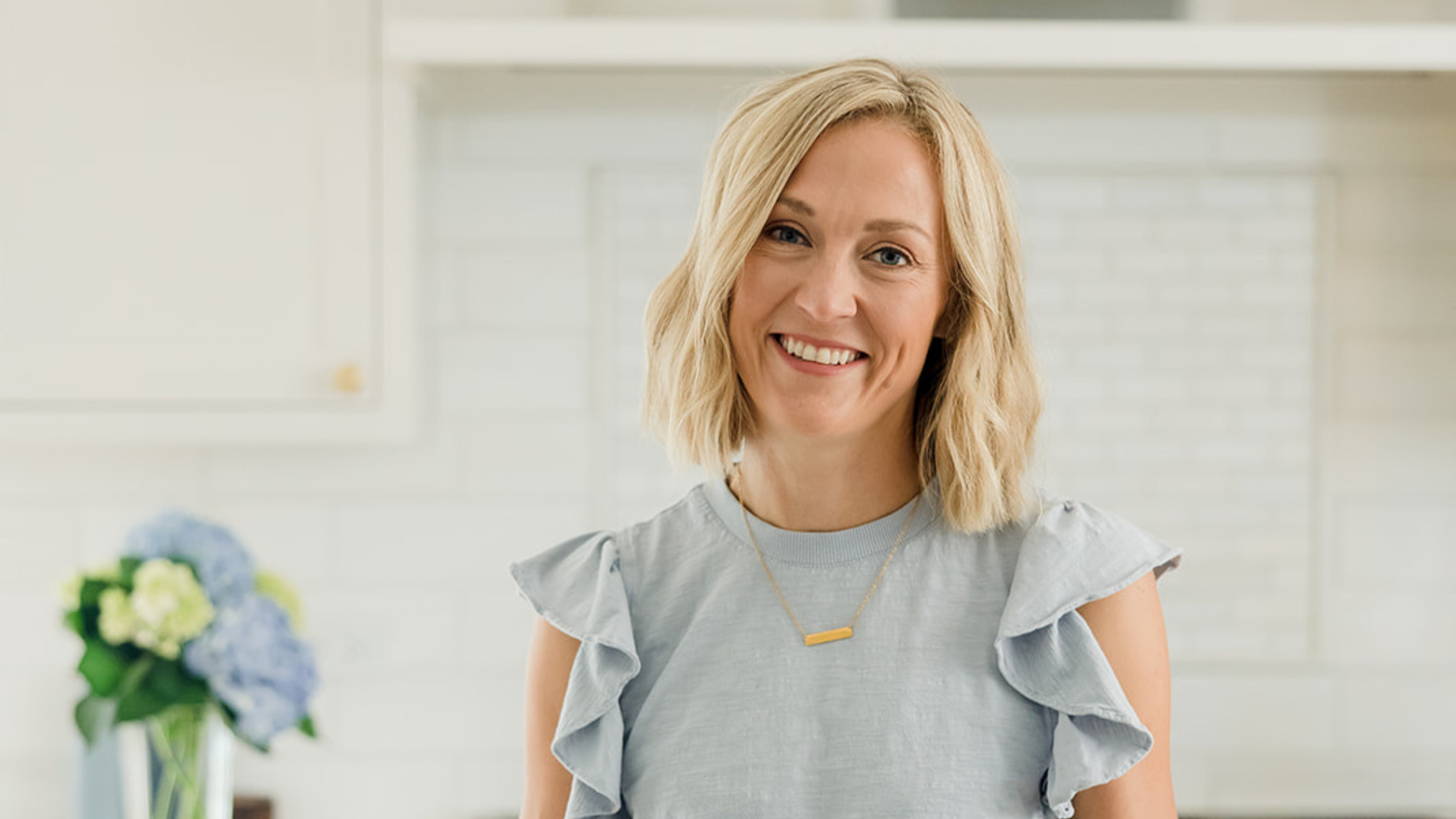
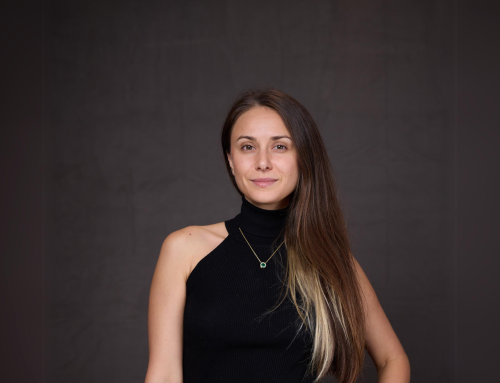
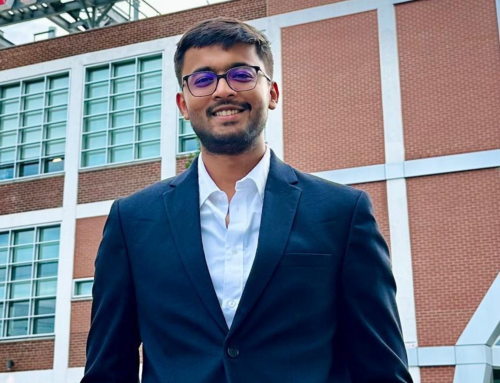
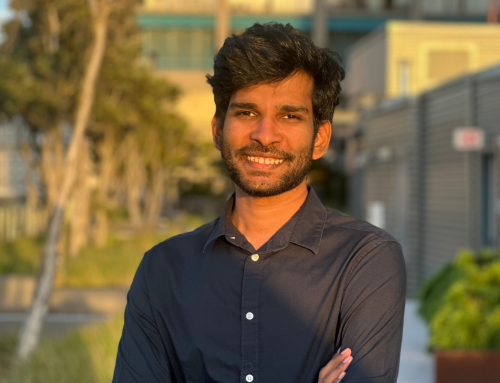
Invite a Friend
Close